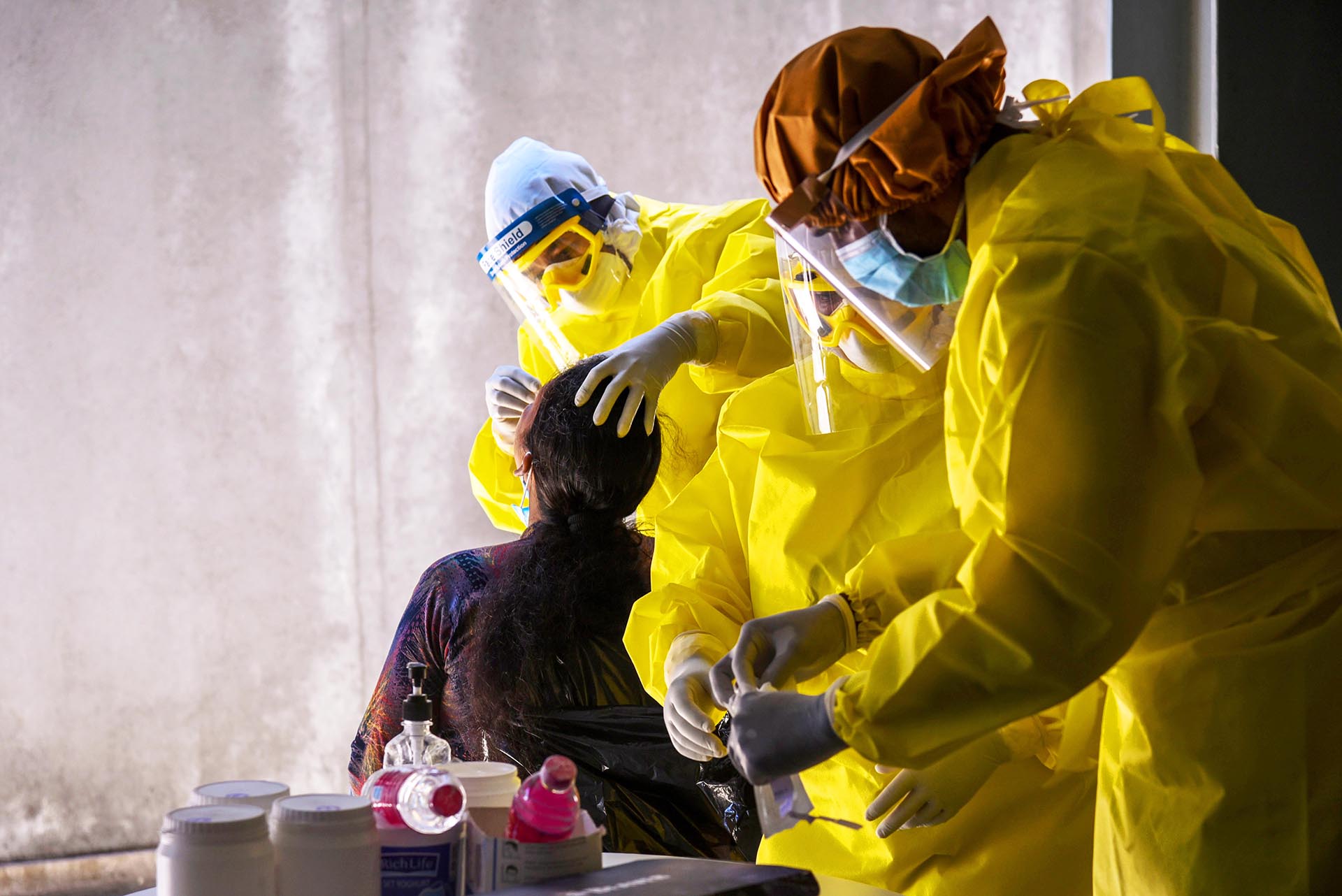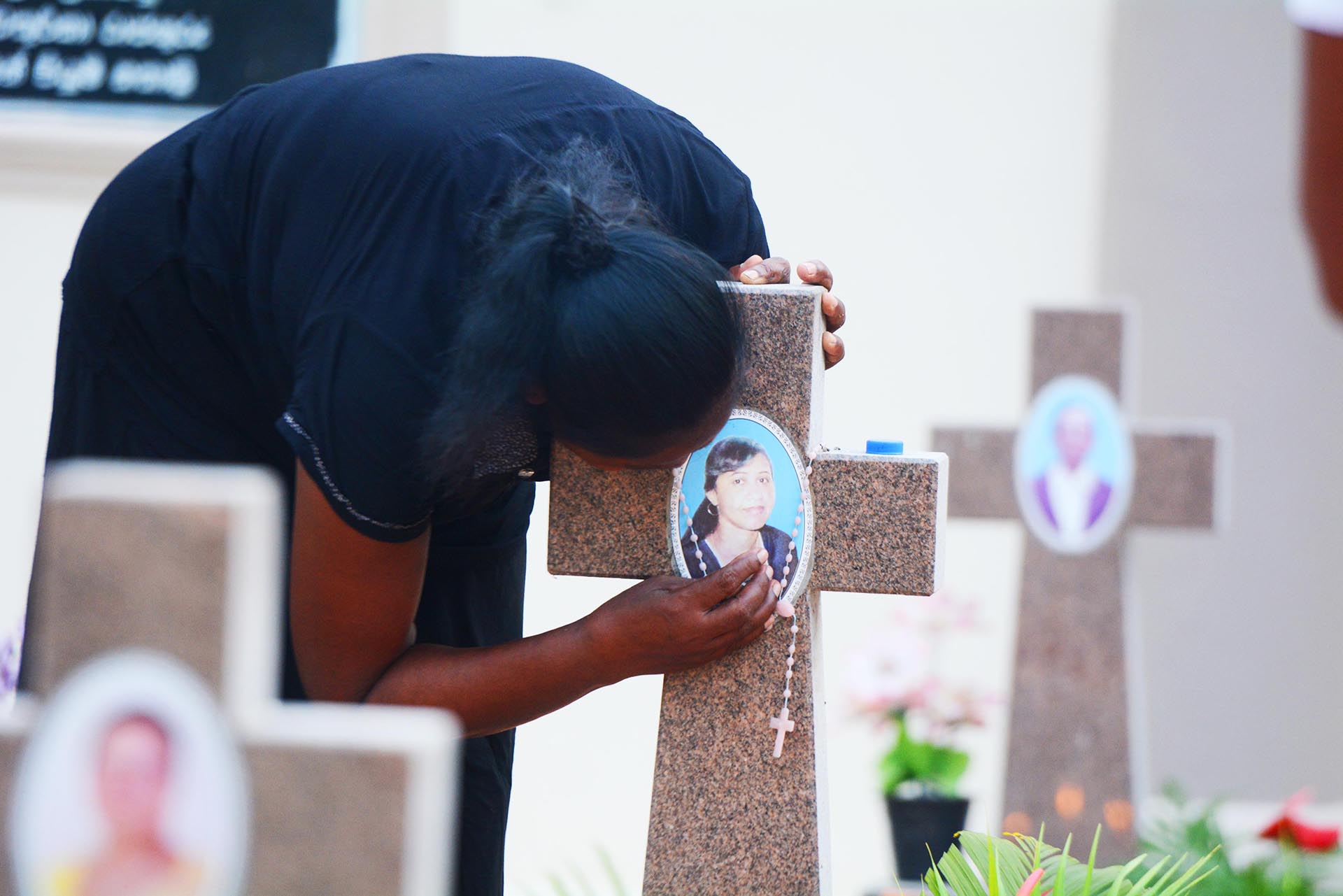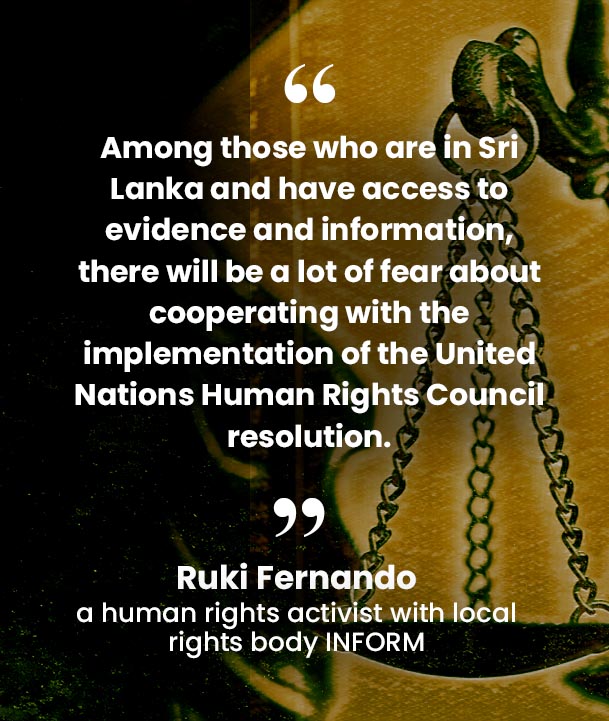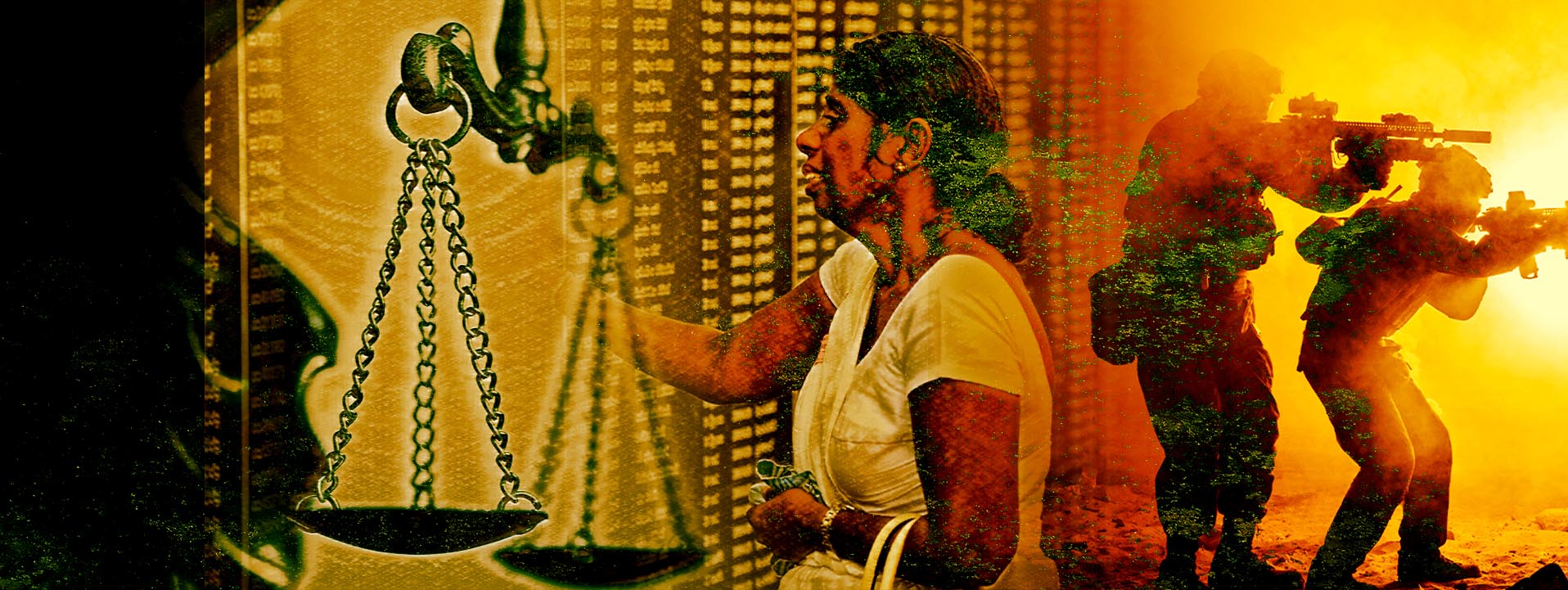Jane*, an activist in Sri Lanka, describes the situation “as if a pale mist” hung over her all the time. “It is there, you feel it on your skin … you know how bad the situation … can get, so you keep a lookout for signs of danger,” she says.
It may seem like Jane is describing the fear in the country since April, when Sri Lanka’s COVID-19 infections had the worst surge since the outbreak of the global pandemic. Since May, the entire island nation has been put into multi-day lockdowns.
In fact, Jane is describing the uncertainty that human rights activists like her face as they work against a government that stonewalls their efforts to seek justice for the victims of Sri Lanka’s longest and bloodiest civil war.
The latest setback: The government’s adamant opposition to a March 23 resolution by the United Nations Human Rights Council (UNHRC) which requested the Office of the High Commissioner for Human Rights (UN Human Rights) “to enhance its monitoring and reporting on the situation of human rights in Sri Lanka, including on progress in reconciliation and accountability, and to present an oral update to the Human Rights Council at its forty-eighth session, as well as a written update at its forty-ninth session and a comprehensive report that includes further options for advancing accountability at its fifty-first session, both to be discussed in the context of an interactive dialogue.”
The resolution provided a US$2.8-million budget for UN Human Rights to collect evidence of abuse and report back to the council. The first oral update is due in September.
On March 26, the Sri Lankan government called the resolution “illegal.” Foreign minister Dinesh Gunawardena told parliament: “There is no moral right to interfere in affairs of a sovereign country in this manner. This sets a dangerous precedent and will have wide-ranging implications for all countries.”

The lack of transparency from Sri Lanka’s public officials is likely to undermine the progress of any fact-finding office. For instance, there is a prevalent sense that they are prevented from disclosing information about the COVID-19 pandemic on the island.
Ultranationalist governance
It has been 12 years since one of the longest and bloodiest civil wars ended in Sri Lanka in May 2009. Yet efforts to achieve national reconciliation efforts stagnated despite the 2015-2019 government that came into power on a platform of ethnic equality and harmony. Instead of devolution of power, more decision-making is now centralized in the president’s office.
The Office of Missing Persons, set up in 2017, has not made any tangible changes to the lives of tens of thousands who are still searching for their loved ones who were made to disappear during the civil war. Earlier this year, a protest campaign by bereaved families and activists in the northern town of Vavuniya played out over 1,500 continuous days.
Even before the Easter Sunday terror attacks in April 2019, nationalist rhetoric gained traction in the island amid government infighting. Tensions rose between nationalist Buddhist groups and minority communities. In 2018, communal violence erupted in the central district of Kandy after a group of Muslim men was accused of fatally assaulting a man from the majority Sinhala community.
Presidential elections in 2019 and parliamentary elections in 2020 brought the Rajapaksa clan back to helm the nation. Tens of thousands of supporters welcomed the return of the powerful family. On the other hand, sections of the Sri Lankan populace viewed the power shift as a dangerous turn to an ultranationalist centralized form of governance,
Draconian laws
With the new government taking office, human rights activists across the island sensed a return to more surveillance. Those who had been engaged in seeking justice for wartime atrocities, like the families of the missing protesters in Vavuniya, said they were losing even whatever faint hopes they had. Others said their work was becoming extremely difficult.
The new government also changed course. Instead of reaching paper agreements with UN rights bodies, it went back to the pre-2015 stance of rejecting any efforts aimed at investigating the last phase of the war. Simultaneously, concerned voices in and out of Sri Lanka called for accountability. The Brussels-based non-profit International Crisis Group says, “The door to domestic accountability and reform has slammed shut.”
International rights groups have been similarly alarmed by instances of the government using draconian anti-terror laws to stifle the right to free expression. “Despite repeated calls from the United Nations and human rights organizations to have the legislation repealed, the authorities continue to use the Prevention of Terrorism Act against some of Sri Lanka’s most vulnerable populations,” a group of international rights groups, including Amnesty International and Human Rights Watch, said in May.
The groups condemn the detention of poet Ahnaf Jazeem by the Sri Lankan authorities since May 16, 2020 “under the draconian Prevention of Terrorism Act, without charges or any credible evidence being presented to a court,” according to Amnesty International. Free Media Movement, the island’s foremost media rights body, also aired similar concerns in May when it decried the recent detention of Chamila Jayasinghe. The assistant commissioner of the Land Settlement Department had merely shared a Facebook post criticizing the government over deforestation.

Even before the Easter Sunday terror attacks in April 2019 that killed 279 people, nationalist rhetoric gained traction in the country amid government infighting.
Serious reprisals
The optics of a looming international standoff aside, the expectation in Sri Lanka is that the UNHRC resolution will not stop the alarming pivot to extreme nationalism within the government’s rank and file. Activists in Sri Lanka say that the resolution for a fact-finding office, like a similar move by the council in 2014, would be used to drum up support against “neo-colonial” interventionism.
They fear that a culture of self-preservation that has taken hold in the island in the last two years is likely to undermine the progress of any fact-finding office. Amid today’s pandemic, for instance, there is a prevalent sense that public officials are prevented from disclosing information on issues such as the COVID-19 pandemic.

Journalists working in the capital Colombo say that the reporting of coronavirus infections and deaths is limited to official government releases despite contradictions from other sources like public health inspectors and regional medical officers.
A recent report in the Sunday Times on the dire realities of COVID-19 witnessed by medical frontliners is a glaring illustration of the government’s determined effort to withhold vital information from the public or any relevant institution.
“None of the medical personnel interviewed for this article will be named. Neither will their hospitals be identified as a result of a circular issued by the Health Ministry Secretary barring staff from communicating with media,” says the weekly broadsheet.
“But the insights they shared can only come from frontline workers dealing with this nightmare every day. Their objective in speaking was to bridge the gap in knowledge between what they see of this disease and what the public knows.”
Ruki Fernando, a human rights activist with the local rights body INFORM, believes that the unwillingness of public officials to disclose information will hinder any impact of a national or an international fact-finding effort.
“I think that among those who are in Sri Lanka and have access to evidence and information, there will be a lot of fear about cooperating with the implementation of the United Nations Human Rights Council resolution,” he says, believing serious reprisals await those who step out of line. ●
* Name withheld upon request.
Amantha Perera has over 15 years of experience as a journalist. His work has been published in TIME, Reuters, the Guardian, and The Washington Post. He also works as a regional coordinator and trainer for the DART Centre Asia Pacific. He is currently pursuing post-graduate research on online trauma threats faced by journalists and their impact at the Central Queensland University in Melbourne, Australia.



















